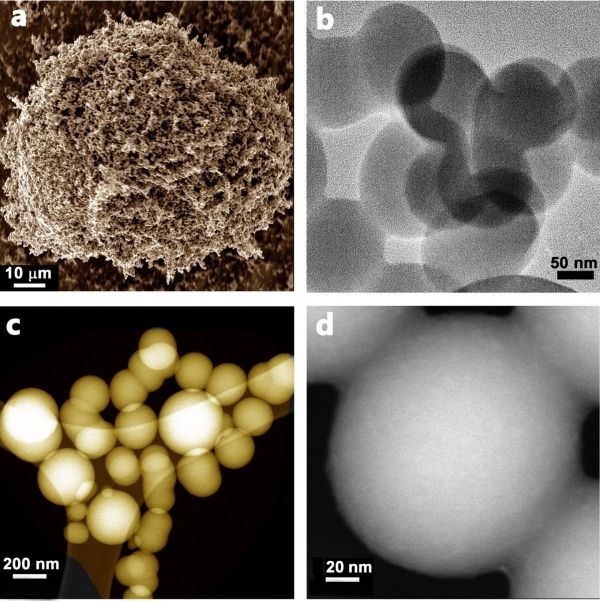A fast, green and one-step method for producing porous carbon spheres, which are a vital component for carbon capture technology and for new ways of storing renewable energy, has been developed by Swansea University researchers.
The method produces spheres that have good capacity for carbon capture, and it works effectively at a large scale.
Carbon spheres range in size from nanometers to micrometers. Over the past decade they have begun to play an important role in areas such as energy storage and conversion, catalysis, gas adsorption and storage, drug and enzyme delivery, and water treatment.
They are also at the heart of carbon capture technology, which locks up carbon rather than emitting it into the atmosphere, thereby helping to tackle climate change.
The problem is that existing methods of making carbon spheres have drawbacks. They can be expensive or impractical, or they produce spheres that perform poorly in capturing carbon. Some use biomass, making them more environmentally friendly, but they require a chemical to activate them.
Read more at Swansea University
Image: Carbon spheres: microscopy image. CREDIT: Energy Safety Research Institute (Swansea University)


